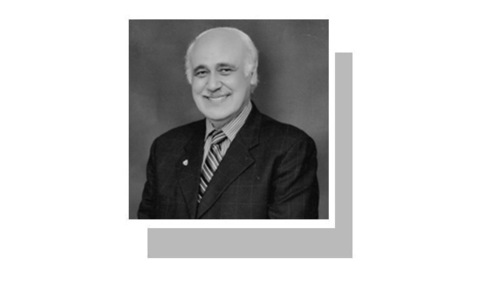The foreign ministers of Iran and Saudi Arabia met in Beijing on Thursday for the first formal meeting of their top diplomats in more than seven years, after China brokered a deal to restore ties between the regional rivals.
After years of hostility that fuelled conflicts across the Middle East, Iran and Saudi Arabia agreed to end their diplomatic rift and re-open embassies in a major deal facilitated by China last month.
In brief footage broadcast on Iranian state TV, Prince Faisal bin Farhan Al Saud and his Iranian counterpart, Hossein Amirabdollahian, greeted each other before sitting down side by side.
The two countries said in a joint statement they would launch arrangements to reopen embassies and consulates within the two-month period stipulated in the deal last month.
“The technical teams will continue coordination to examine the ways of expanding cooperation including the resumption of flights and bilateral visits of official and private sector delegations and facilitating the granting of visas for the citizens of the two countries,” they said.
In March, China’s President Xi Jinping helped broker a surprise deal between regional rivals Tehran and Riyadh to end a seven-year rift and restore diplomatic ties — a display of China’s growing influence in the region.
In March, Xi spoke by phone with Saudi Crown Prince Mohammed bin Salman Al Saud about several issues.
Iranian Foreign Minister Amirabdollahian said the Thursday meeting with his Saudi counterpart was “good and forward-looking”, according to Iranian state TV.
China’s role in the breakthrough shook up dynamics in the Middle East, where the United States has for decades been the main mediator.
Saudi Arabia cut ties with Iran in 2016 after its embassy in Tehran was stormed during a dispute between the two countries over Riyadh’s execution of a Shia cleric.
The kingdom then asked Iranian diplomats to leave within 48 hours while it evacuated its embassy staff from Tehran.
The relationship began worsening a year earlier, after Saudi Arabia and the United Arab Emirates intervened in the Yemen war, where the Iran-aligned Houthi movement ousted a Saudi-backed government and took over the capital, Sanaa.
For Saudi Arabia, the deal could mean improved security. The kingdom has blamed Iran for arming the Houthis, who carried out missile and drone attacks on its cities and oil facilities.
In 2019, Riyadh blamed a massive attack on Aramco oil facilities, which knocked out half of its oil output, directly on the Islamic Republic. Tehran denied those allegations.
















































Dear visitor, the comments section is undergoing an overhaul and will return soon.